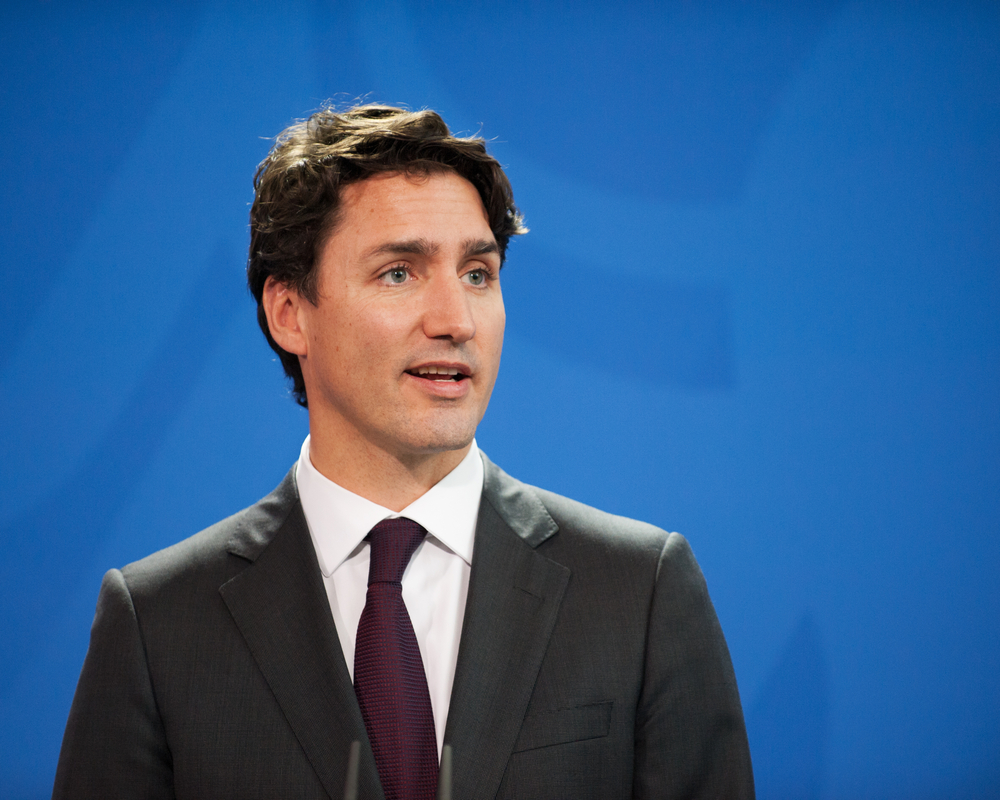
LIMA, Peru — Canada stood behind its closest allies on Friday as the U.S., Britain and France launched airstrikes against Syria’s government in retaliation for a suspected chemical-weapons attack that killed dozens of people.
U.S. President Donald Trump announced the strikes in a national address, and promised Washington was prepared to “sustain” pressure on the Syrian government until it stopped killing its own people with banned weapons.
Reporters on the ground in Damascus reported loud explosions and heavy smoke filling the sky over Syria’s capital after missiles slammed into what the U.S. claimed were suspected chemical-weapon sites.
Syrian television said the attacks targeted a scientific research centre in Barzeh, near Damascus, and an army depot near Homs.
Shortly after the strikes, Prime Minister Justin Trudeau issued a statement condemning the use of chemical weapons in eastern Ghouta, where more than 40 people were killed and 500 injured — many of them children — on April 7.
“Canada supports the decision by the United States, the United Kingdom, and France to take action to degrade the Assad regime’s ability to launch chemical weapons attacks against its own people,” Trudeau said.
Trudeau went on to promise that Canada would “continue to work with our international partners to further investigate the use of chemical weapons in Syria,” adding: “Those responsible must be brought to justice.”
The prime minister is currently attending the Summit of the Americas in Peru, and was at a reception with U.S. Vice-President Mike Pence shortly before the news broke that the U.S. was preparing to launch strikes.
He had previously ruled out any Canadian involvement in a military strike, though a senior government official said Canada “was in the loop” before the attacks against Syria were launched.
The question of who is responsible for the chemical attack on the rebel-held enclave near Damascus, the second such attack in the past year, has become a central issue.
The Syrian government has denied responsibility for the attack while Russia has suggested Israel or Britain was to blame, the latter to justify increased western intervention into the country.
But Foreign Affairs Minister Chrystia Freeland told reporters on the sidelines of the Summit of the Americas on Friday that Canada laid the blame squarely with Syrian President Bashar al-Assad, as well as his Russian and Iranian supporters.
“When it comes to this use of chemical weapons, it is clear to Canada that chemical weapons were used and that they were used by the Assad regime,” Freeland said.
The minister did not specify what evidence the government has to reach that conclusion, however, saying only that Canada is working with non-government organizations and others to collect evidence of war crimes in Syria.
“We have seen as a pattern in the world today is actors who behave in a reprehensible manner, then can be quite clever in trying to muddy the waters and in trying to dodge responsibility,” she added.
“Of course, it is important for Canada to be a country that acts based on facts. But it is equally important for us to be aware of the distraction tactics that some of the actors in the world are using today and to not allow those tactics to work.”
The strikes prompted swift condemnation from Syria and its allies, with Syrian state TV calling them a “blatant violation of international law.”
Russia’s U.S. embassy released a statement warning that the airstrikes would “not be left without consequences.” It said that “all responsibility” rests with Washington, London and Paris.
U.S. Defense Secretary James Mattis described Friday night’s strikes as “a one-time shot,” but did not rule out further attacks.
British Prime Minister Theresa May described the attack as neither “about intervening in a civil war” nor “about regime change,” but a limited and targeted strike that “does not further escalate tensions in the region” and does everything possible to prevent civilian casualties.
“We would have preferred an alternative path. But on this occasion there is none,” May said.
The decision to strike, after days of deliberations, marked Trump’s second order to attack Syria; he authorized a barrage of Tomahawk cruise missiles to hit a single Syrian airfield in April 2017 in retaliation for Assad’s use of sarin gas against civilians.
Trump chastised Syria’s two main allies, Russia and Iran, for their roles in supporting “murderous dictators,” and noted that Russian President Vladimir Putin had guaranteed a 2013 international agreement for Assad to get rid of all of his chemical weapons.
He called on Moscow to change course and join the West in seeking a more responsible regime in Damascus.
Friday’s strikes appear to signal Trump’s willingness to draw the United States more deeply into the Syrian conflict.
The participation of British and French forces enables Trump to assert a wider international commitment against the use of chemical weapons, but the multi-pronged attack carries the risk of Russian retaliation.
— With files from the Associated Press